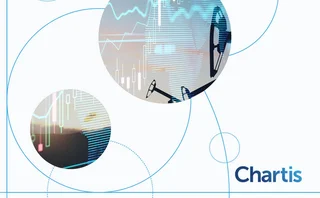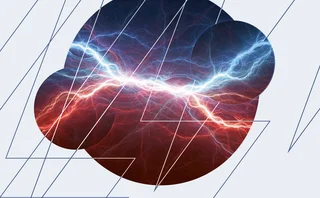
Gazprom claims highlight stranglehold over European gas
An EC antitrust probe throws Gazprom's dominance in central and eastern Europe into sharp relief, but will do little to alleviate it

Oil indexation – the practice of linking the price of natural gas in long-term contracts to oil and oil products – has long been a sore point for European buyers. On April 22, the issue exploded into the headlines as the European Commission (EC) issued a statement of objections in a long-running antitrust probe into Russian gas giant Gazprom.
The EC's statement outlined its preliminary view that Gazprom – the dominant supplier of gas to central and eastern Europe, with a 100% market share in some countries – is breaking European Union antitrust rules. Its main complaints were: Gazprom's use of territorial restrictions in its sales contracts, such as export ban and destination clauses; an allegedly unfair pricing policy that includes the use of oil indexation; and the alleged tying of natural gas supplies to deals on pipeline infrastructure.
In a statement released the same day, Gazprom denied the claims, saying it "strictly adheres to all the rules of international law and legislation in the countries where [it] operates". It also cited its status as a "strategic state-controlled entity", saying that it expected the matter to be resolved in intergovernmental talks.
For Gazprom, the matter is a political and not a legal one. While disappointing, this attitude might not be surprising, given that little in today's Russia seems to be truly isolated from politics.
Whether or not the company breached EU rules, questions are increasingly being asked about Europe's heavy reliance on Russian gas, especially given the conflict in Ukraine. The EC is eager to strengthen and secure Europe's energy market. To do so, it needs an ambitious plan for investing in energy infrastructure and diversifying supplies.
Questions are increasingly being asked about Europe's heavy reliance on Russian gas, especially given the conflict in Ukraine
This is a huge, expensive and time-consuming task. It will mean improving electricity and gas interconnections, promoting the expansion of renewables and fostering greater energy efficiency. It will also mean taking hard decisions about whether to exploit Europe's own fossil fuel resources – both conventional and unconventional – and whether to build new nuclear power stations.
As far as Gazprom is concerned, there is probably a deal to be done here. The company accepts that a move towards more market-based gas pricing is inevitable in Europe. It should step back from some of its most aggressive sales practices in return for a swift settlement from the EC. In return, the EC would tacitly recognise Gazprom's continued stranglehold over central and eastern Europe, which is unlikely to be broken any time soon.
Only users who have a paid subscription or are part of a corporate subscription are able to print or copy content.
To access these options, along with all other subscription benefits, please contact info@risk.net or view our subscription options here: http://subscriptions.risk.net/subscribe
You are currently unable to print this content. Please contact info@risk.net to find out more.
You are currently unable to copy this content. Please contact info@risk.net to find out more.
Copyright Infopro Digital Limited. All rights reserved.
As outlined in our terms and conditions, https://www.infopro-digital.com/terms-and-conditions/subscriptions/ (point 2.4), printing is limited to a single copy.
If you would like to purchase additional rights please email info@risk.net
Copyright Infopro Digital Limited. All rights reserved.
You may share this content using our article tools. As outlined in our terms and conditions, https://www.infopro-digital.com/terms-and-conditions/subscriptions/ (clause 2.4), an Authorised User may only make one copy of the materials for their own personal use. You must also comply with the restrictions in clause 2.5.
If you would like to purchase additional rights please email info@risk.net
More on Energy
ETRM systems 2024: market update and vendor landscape
This Chartis report evaluates energy trading and risk management systems that provide front-to-back, asset class-specific and geography-specific coverage, and considers the full energy trade lifecycle
CTRM systems 2024: market update and vendor landscape
A Chartis report on commodity trading and risk management systems that considers its different applications and addresses the market and vendor dynamics to determine the long-term and structural impacts of the overarching market evolution on the…
Energy Risk Commodity Rankings 2024: markets buffeted by geopolitics and economic woes
Winners of the 2024 Commodity Rankings steeled clients to navigate competing forces
Chartis Energy50
The latest iteration of Chartis’ Energy50 ranking
Energy trade surveillance solutions 2023: market and vendor landscape
The market for energy trading surveillance solutions, though small, is expanding as specialist vendors emerge, catering to diverse geographies and market specifics. These vendors, which originate from various sectors, contribute further to the market’s…
Achieving net zero with carbon offsets: best practices and what to avoid
A survey by Risk.net and ION Commodities found that firms are wary of using carbon offsets in their net-zero strategies. While this is understandable, given the reputational risk of many offset projects, it is likely to be extremely difficult and more…
Chartis Energy50 2023
The latest iteration of Chartis' Energy50 2023 ranking and report considers the key issues in today’s energy space, and assesses the vendors operating within it
ION Commodities: spotlight on risk management trends
Energy Risk Software Rankings and awards winner’s interview: ION Commodities







